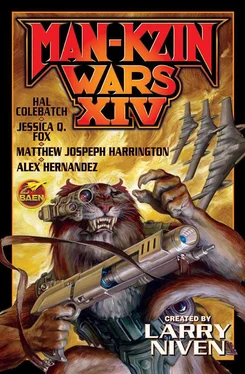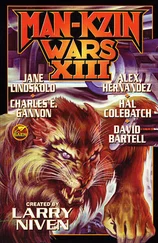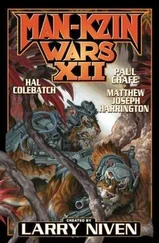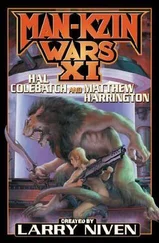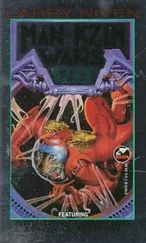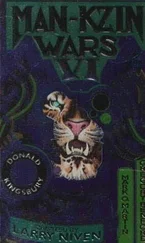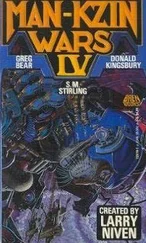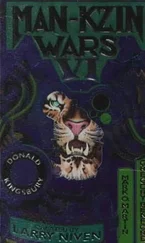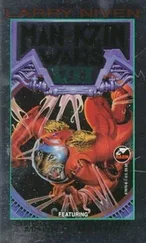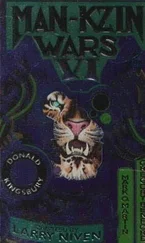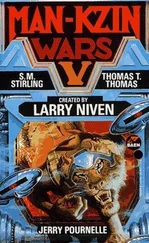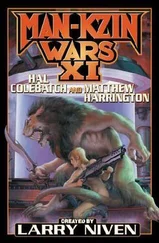Hal Colebatch - Man-Kzin Wars – XIV
Здесь есть возможность читать онлайн «Hal Colebatch - Man-Kzin Wars – XIV» весь текст электронной книги совершенно бесплатно (целиком полную версию без сокращений). В некоторых случаях можно слушать аудио, скачать через торрент в формате fb2 и присутствует краткое содержание. Год выпуска: 2015, Жанр: Фантастика и фэнтези, на английском языке. Описание произведения, (предисловие) а так же отзывы посетителей доступны на портале библиотеки ЛибКат.
- Название:Man-Kzin Wars – XIV
- Автор:
- Жанр:
- Год:2015
- ISBN:нет данных
- Рейтинг книги:3 / 5. Голосов: 1
-
Избранное:Добавить в избранное
- Отзывы:
-
Ваша оценка:
- 60
- 1
- 2
- 3
- 4
- 5
Man-Kzin Wars – XIV: краткое содержание, описание и аннотация
Предлагаем к чтению аннотацию, описание, краткое содержание или предисловие (зависит от того, что написал сам автор книги «Man-Kzin Wars – XIV»). Если вы не нашли необходимую информацию о книге — напишите в комментариях, мы постараемся отыскать её.
Man-Kzin Wars – XIV — читать онлайн бесплатно полную книгу (весь текст) целиком
Ниже представлен текст книги, разбитый по страницам. Система сохранения места последней прочитанной страницы, позволяет с удобством читать онлайн бесплатно книгу «Man-Kzin Wars – XIV», без необходимости каждый раз заново искать на чём Вы остановились. Поставьте закладку, и сможете в любой момент перейти на страницу, на которой закончили чтение.
Интервал:
Закладка:
He was not accustomed to being startled when he woke up.
Certainly not by a group of stern-faced guards. He checked his weapons by reflex, but left them; he’d spent his entire career doing what he believed was right, and however someone had disagreed on what that might have been, shooting his way through his fellow ARMs wasn’t it. He opened the ’doc and said, “Do I get to eat?”
“You’re not under arrest,” said Smith. The Marsborn agent was the only man he recognized. “But we really do want to ask you an awful lot of questions. The ship you sent off last night has disappeared.”
“Ship?”
Smith squinted, then said, “Aw, tanj, he’s had an erasure. Assume lethal traps and search the place.”
“I can point things out if you like,” Early said, utterly at a loss. Why would he have an erasure?
“You might have had some things erased,” Smith said.
Early got up, went into the bathroom, showered, dressed-he’d apparently remembered to run the laundry last night, all his clothes were in the cabinet-and went to the kitchen to start the roast.
After a while he heard an exclamation and came to the doorway to see who’d made what mistake. They were all standing at the desk looking at the screen. Smith looked at him and said, “Where the fuck did you get this crystal?”
Early spread his hands, shook his head, and went over to see what it was.
It was in kzin script, with a running translation down the side of the screen.
If it was genuine, it was the entire kzin order of battle, including the target schedule for the current war. They were making copies already.
He must have had an erasure to protect the identity of one king-hell insider in the Patriarch’s Palace.
“If this checks out,” Smith said, “that funny business last night isn’t going to cause you much trouble. You’ll probably be promoted to a directorship to keep you out of trouble, but I imagine you’d find it difficult to get out from behind your desk under the weight of all the medals anyway. Marshall, you’re either the smartest man alive, or the luckiest.”
The copying was done, and the screen reverted to a desktop that wasn’t his: a reclining woman he’d never seen before, almost entirely Caucasian, nude, built like he liked ’em, and smiling at the camera with what looked much very like love in her eyes. Below it was perhaps the most unnecessary caption imaginable:
HOT.
THE WHITE COLUMN
by Hal Colebatch
The lift took me deep underground, past five decks of steel and concrete, the guard glaring at me and my own escort, and apparently deciding he hadn’t quite got an excuse to shoot us. The site was well hardened.
General Burkholtz greeted me at Level 5 and took me through the second retinal identification. Then our far-seer was to be presented to me.
“We’ve tested him at short range, sir. To show us, under top secrecy of course, headlines of newspapers from different parts of the world, from a few weeks ahead. In each case the newspapers, when they were printed, were exactly as he had pictured them. It works for sounds as well-he recorded a new symphony before it was written. It was just a matter of fitting phones on the opti-encephalograph.”
“Why not just have him read all the future documents, then?”
“He can’t see to that degree of visual detail. And also because in every previous case where such an ability has been present in some degree, it very rapidly burns itself out. It did with Basil Shackleton. Already we are starting to get flickerings in the pictures he ‘transmits.’ Once the ability has gone, it doesn’t come back. We don’t want to waste it, sir. He’s the best we’ve ever had, but judging from the rate of ‘flickering’ we have recorded, which is increasing exponentially, he probably has only one session left in him. We don’t want to waste it.”
“Is he aware of this?”
“That he’s nearly finished as a far-seer? Yes. I think he’s rather pleased at the prospect of becoming normal.”
“Can you tell what the headlines of the newspapers he saw say, at least?”
“The usual stuff, sir. Things going from bad to worse. Nuclear proliferation. Environmental decay. The blow-up getting nearer. We’ve photographs of them here.”
“It reminds me of a science fiction story I once read,” I said. “Someone else who could see the future, just like this. The military, for obvious reasons, asked him to draw the most advanced weapon he could see from a century hence. They puzzled over the picture he brought back, turned it over to the best teams of scientists. Someone eventually recognized it as a crossbow.”
There was a very mirthless laugh from these, our own best team of scientists. They brought Richard Billings, the far-seer, forward and presented me to him. A very ordinary name, I thought.
He was a somewhat shabby, unkempt-looking man, despite the major’s uniform someone had put him into, not unpleasant-looking, but undistinguished and, apart from the pallor they all shared from living underground, out of place in this company of high-domed heads and spectacles. Like many people, he seemed somewhat shy at meeting me. I told him we all appreciated the patriotic thing he was doing. The pallor threw up his blushes and he stammered something.
“I hope I can help, sir” he said. I asked him, as I suppose many had done before, how he thought he did it. “My subconscious-or something-points me at what I see,” he said, “but I can hardly remember it. I didn’t recognize the newspapers when they showed the photographs of them to me.”
“Is it painful?” I asked.
“No, not really, sir.”
Dr. Gropius took me to one side.
“The general is right, as far as we know, sir,” he said. “We think the next session will be his last.”
“And what’s he programmed to find?” It was easy to talk of Billings as if he were not there. We thought of him as a weapon, not a man.
“The most advanced artifact existing a hundred years from now.” He smiled wryly. “I hope it won’t be the crossbow.”
We sat back. Billings, the opti-encephalograph clamped to his head, his arms and legs restrained, slumped forward in his couch. There was a faint humming as the current built up. Then a picture appeared on the screen in front of us.
There was a flat, reddish plain. In the center was a white column, with what appeared to be some sort of decoration at the top. The microphones recorded a whistling wind. There were what might have been low buildings or paving nearby, but scale and size were impossible to tell.
“A column.” I thought of “Ozymandias”-“‘Look on my works, ye mighty, and despair.’” I quoted. “Is it a ruin?” As the scene grew darker, I recognized the Pleiades in the sky. I could identify the scene as the Northern Hemisphere, anyway.
“Doric,” said someone. “Or Corinthian, maybe…Yes, ‘round the decay of that colossal wreck, boundless and bare/ the lone and level sands stretch far away.’” The picture flickered. There was what seemed a long pause, and it returned.
“That’s the longest interrupting yet,” said Dr. Gropius, “And the quickest to manifest itself. It’s breaking up fast.”
Nothing seemed to be moving in the picture, save that it was sunset, and as night deepened more stars were beginning to appear. There was bright Venus, and Orion’s Belt.
“It can’t have moved since classical times,” said someone. “Maybe it’s all that remains of the Roman ruins of Leptis Magna, or somewhere else in North Africa.”
“Or what the Romans called Arabia Felix.”
“If that is the most advanced surviving artifact, all the cities must be gone, all machinery…”
Читать дальшеИнтервал:
Закладка:
Похожие книги на «Man-Kzin Wars – XIV»
Представляем Вашему вниманию похожие книги на «Man-Kzin Wars – XIV» списком для выбора. Мы отобрали схожую по названию и смыслу литературу в надежде предоставить читателям больше вариантов отыскать новые, интересные, ещё непрочитанные произведения.
Обсуждение, отзывы о книге «Man-Kzin Wars – XIV» и просто собственные мнения читателей. Оставьте ваши комментарии, напишите, что Вы думаете о произведении, его смысле или главных героях. Укажите что конкретно понравилось, а что нет, и почему Вы так считаете.
